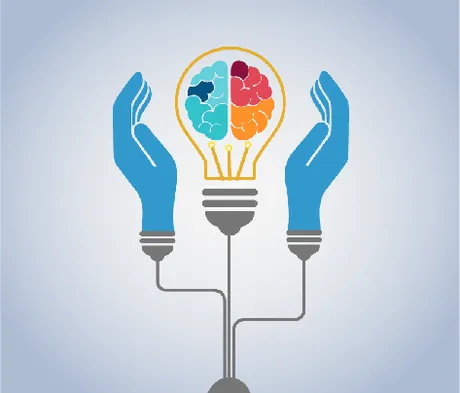
A self-refuting idea or self-defeating idea is an idea or statement whose falsehood is a logical consequence of the act or situation of holding them to be true.
Child of Paradox and Oxymoron
Because crypto is such a new and largely undiscovered paradigm, there are a lot of bad ideas floating around out there. Which is fine... I have bad ideas all the time. The difference being that I'm constantly trying to identify them and learn from my mistakes. There are those who would hunker down and double down on the terrible idea out of pure hubris and pride. These people are not to be taken seriously. Then again, separating the chaff from the wheat is no trivial task. How can we distinguish the two? Who is honorable, and who is full of it?

Addiction into Death Spiral
One of the easiest self-defeating narratives to identify is when someone is hopelessly addicted to some kind of substance that is actively ruining their life. In the mind of the addict:
I need to do more drugs so I can feel better.
While everyone else in that person's life can see that the drug has become a bigger problem than the coping mechanism it was being used for in the first place. Classic case of "it's going to get worse before it gets better" scenario. This is why so many drug users need to experience "rock bottom" before they turn their life around (or end up dying via overdose).
While we're on this topic it looks like I haven't ingested caffeine for 8 days. That's pretty wild I thought I was on day 5 or something. Surprisingly not a terrible experience as compared to previous iterations. But now I'm off topic.
Crypto crypto crypto
The biggest self-defeating strategy in crypto is the scaling up debacle. Why do we need to scale up? Because decentralization is important. It's so important that we need lower fees and higher throughput. It's so important that we need mass adoption. It's so important we need to compete with other platforms to make sure we don't fall behind.
And then what happened?
The network scales up and it loses decentralization. Well that was the precise reason to justify scaling up in the first place. Right? "Decentralization is important?" So important that some networks decided they needed to antiquate themselves in the process. Clearly the best example of this is Ethereum, but we've yet to see that story completely unfold. Give it time. Pray for a miracle because they need one. Luckily crypto is full of miracles. After all, the creation of Bitcoin/POW itself was quite miraculous. Ethereum won't go quietly into the night that's for sure.
What about Bitcoin?
In my last post I talked about BRC-20 tokens and Ordinal NFTs on the Bitcoin blockchain. This is another case of sheer irony on top of layered self-defeat. Why is it ironic? Because the Taproot upgrade that implemented Schnorr Signatures was meant to help Bitcoin scale. It worked so well that Bitcoin now has fungible and non-fungible tokens on it and the cost of operations has skyrocketed to $30 a pop recently. So while many hoped that Taproot would keep the chain clean and elegant it's become bloated and ridiculous for the time being. Classic blunder is classic.
This situation also trickles down into the Lightning Network. Opening and closing LN channels is much more expensive now, so many are flocking to the centralized options in which a company controls the keys and let's you use the LN by proxy (like Alby). Of course @theycallmedan has been talking about this exact topic for what seems like years now. So now he gets to smugly take an I-told-you-so victory lap around the crypto race-track. Glorious. I'm here for it.


What about Hive?
On the scaling side of things Hive is doing great. Every time we make a scaling improvement we don't have to sacrifice very much decentralization (if any). We've been making very good trades in that regard. However Hive is still obviously littered with bad ideas. Many of the themes in question are recurrent and dependent on price action. I like to call these propositions...
"Bear Market Ideas"
A bear-market-idea is one that people only talk about when the price of the token is down. It's as if people think they can tame the market cycle with a good idea. Spoiler alert: you can't and good thing we never implement any of these ideas because they'd only make the problem worse.
The core premise of the vast majority of bear-market-ideas is that we need to lower the inflation rate and/or implement token burns. Of course this is ridiculous sentiment, and I have even gone to great lengths to explain why crypto inflation is the killer application. Inflation is amazing if we allocate it to the right locations. Essentially all inflation that a network allocates should generate more value than it dilutes.
So when someone has the 'brilliant' idea that we need to lower inflation: what they are actually implicitly saying is such:
This place that we are allocating inflation to has negative value.
And yet even though the person is unequivocally saying this, they will proceed to make subsequent statements that will contradict this statement. And thus we reenter the self-defeating ideology territory.
"Let's outsource the reward pool to a layer 2 token"
This statement is the premise of the entire post. Turns out there were a bunch of other things to talk about as well.
The idea that we should get rid of the reward-pool and outsource it to some random second layer is a provably false statement. Anyone who argues otherwise is either ignorant being purposefully deceitful. I lean toward ignorant at first glance but when I see top 20 witnesses pitching the idea with blatant conflicts of interest I do start to wonder. To be fair I haven't seen the idea pitched for quite some time, so maybe I'm beating a dead horse here.

This is not my opinion
It is a provable fact that outsourcing the reward pool to the second layer is a bad idea. I bet a lot of people reading this will interpret this stance as arrogant and perhaps a bit ridiculous, and certainly I resonate with that. It certainly sounds like a subjective opinion with two sides making valid points within a political arena. Even with that in mind I still believe my assessment is 100% correct. The idea itself is an impossible paradox.
How?
Here is the argument laid out in logical form:
- We need to increase the spot price of Hive (insert bear-market idea here).
- Inflation is too high.
- Maybe we should deallocate inflation to the reward pool and outsource it.
- The new token will be our blogging token.
Okay well that has the appearance of a legitimate idea.
And yet it is not.
The idea only makes sense if we ignore everything being implied by it.
- The inflation allocated to the reward pool has negative EV.
- We should outsource that negative EV to another token and expect it to magically have a positive EV and not crash to zero.
See what I did there?
That is what I see! If the reward pool was a burden to the Hive network and you want to outsource that burden to a second layer token... then how is it going to suddenly be a boon to the new network? Make it makes sense bruv. Ah, that's right you can't because the idea completely destroys itself at ground zero takeoff immediately. OOPS!
"But what about LEO"
The last time I got into this argument the person brought up LEO as if it was some kind of logical checkmate. First of all HE tokens are very much centralized to the point of the creator of the token being able to mint coins for any reason up to the maximum cap (which always ends up being practically infinite for valid development reasons). Second LEO is not a blogging token. Bridges have been built to EVM. We now have access to a Twitter clone. Lite account development chugs along. LEO is not a valid comparison in any way, and it blows my mind that it would even be mentioned within this context.
This is why I believe it's possible that some who have espoused this idea are being deceitful. A top 20 witness that doesn't blog has a conflict of interest in that they'll still be earning their inflation. They sacrifice nothing while trying to take inflation away from others on the network; centralizing the chain to ones who already control it to a large extent.

Hm... yeah. Not a great look.
And again I'm not singling out any particular witnesses here or saying that this is a legitimate threat, only that I've been here since 2017 and I've seen it pitched more than a couple times over the years.
The point being is that either the reward pool (blogging) has negative EV and we should scrap it entirely, or it has a positive EV and we should keep it. There is no middle ground. Pitching the idea that it has negative EV and then trying to appease dissent by saying "don't worry we'll just move it to the second layer"... well it's alarming to say the least. Not even because the idea is bad and self-defeating, but because we have to hope that the people saying it are simply ignorant of what they are saying rather than being actively deceitful and trying to trick others into agreeing with them. That's exactly how propaganda works: one deceitful person tricks a thousand others into ignorantly spreading the message.
(See: Bitcoin wastes energy.)

scarcity vs abundance
As @taskmaster4450 and I are constantly pointing out: token burns and inflation reductions are rooted in scarcity and fear. This is not the mindset we need to be in to build actual value within this ecosystem. We cannot tame the market cycle with bear-market-ideas. Rule of thumb: if you wouldn't pitch the idea at all time highs then it's just as invalid at all time lows. Bear-market-ideas are fear based and will only make the problem worse. They are self-defeating and not to be taken seriously.
We need to put this into the correct context
The very concept of outsourcing the reward pool comes from the idea that the reward pool allocates inflation to bloggers. Again, this is incorrect at the core. A "comment" on Hive could be anything. There's even a place on the comment API that allows native javascript to be injected or extracted as needed.
What's needed is abundance.
If anyone thinks we are wasting money allocating inflation to bloggers... then... build something better. Stop trying to take away the inflation from comments and instead create a better system that allows users to get rewarded from comments that are not blogs. Now, obviously this is easier said than done but... nobody said abundance was easy. New paradigms are difficult to adapt to, but the evolution will be worth it.
Need Proven Templates
We've already seen this multiple times in crypto. When one protocol has success it is copied and cloned a thousand times over. From the chaos will emerge a few viable options and inevitably all the scams that are leftover will be purged by the subsequent bear market. However, without the template, everyone is flying blind. We need better templates, and that simply takes a lot of time and a bit of luck.
2018 @edicted
I'll be the first to admit when I got here in 2018 I was a total dumbass and had many many terrible ideas for this place. Let me go find the worse offender: Steemit Virtual Government: Declaration of Independence. OMFG it's so god damn cringe I can't even believe it. 4000 words of pure bullshit. I can't even read it even though I've tried to a couple of times now.
(In my defense it is dated Jan 3, 2018 which means I had only been blogging for two weeks).
First of all just the title itself implies that I don't know the difference between Steem and Steemit Incorporated. YIKES! Even worse, many of my ideas back in the day were based on ignorant concepts... like "banning bots" was possible. I didn't realize that what I was really implying is that this network needs KYC... which is obviously a shit idea and I did not have any clue what I was talking about. Fake it till you make it amirite? We all stumble into our current position one way or another.

Conclusion
Because crypto is so new and uncharted, there are a lot of bad ideas and tokenomic systems floating around out there. When a dev team doxes their entire crew on a marketing website, what do we see? Or more accurately: what DON'T we see? Where is the "economist"? Where is the "politician"? Don't self-sovereign economic systems have dire need of both politicians and economists? That's how early in the game we are, as these positions do not even exist yet. Think about it.
At the end of the day, self-defeating ideas are dead on arrival. To be honest they aren't that difficult to spot, but the FOMO/FUD cycles of crypto can blind us to the truth as we tend to act on emotion during those boom and bust cycles rather than logic and reason. As much as I'd like to be the exception I must admit that I get-got all the time. Live and learn.
Return from Self-Defeating Ideology to edicted's Web3 Blog
